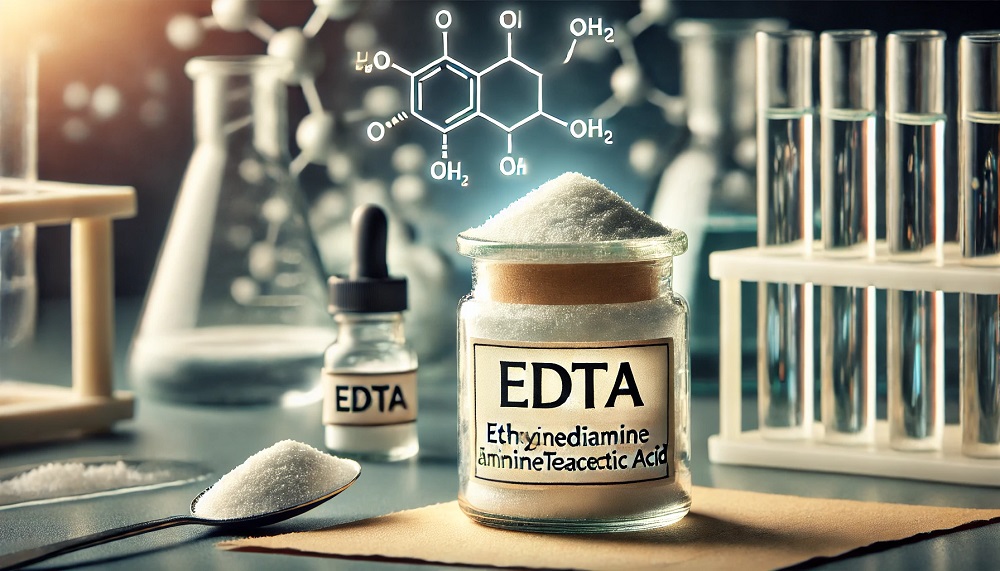Role of Ethylenediaminetetraacetic Acid (EDTA) in Cosmetics

Role of Ethylenediaminetetraacetic Acid (EDTA) in Cosmetics: In the cosmetics industry, Ethylenediaminetetraacetic Acid (EDTA) is a commonly used ingredient that enhances the effectiveness and stability of cosmetic products. Primarily, it acts as a chelating agent, binding metal ions present in the formulation and making the product last longer. In this blog, we’ll discuss the role, benefits, and safety of EDTA in cosmetic products.
বাংলা পোস্ট:
What is Ethylenediaminetetraacetic Acid (EDTA)?
Ethylenediaminetetraacetic Acid (EDTA) is a water-soluble, strong chelating agent used in cosmetics. It binds metal ions in water and other ingredients, which can otherwise reduce the stability and effectiveness of a product. EDTA often functions as a preservative, extending the shelf life of the product and ensuring that it remains effective over time.
Role of EDTA in Cosmetic Products
- Acts as a Preservative
EDTA helps extend the shelf life of cosmetic products by controlling microbial growth. It preserves the product, ensuring that it remains safe and effective for a longer period.
- Neutralizes Metal Ions
Metal ions present in water or other ingredients can reduce the stability of cosmetic products. EDTA neutralizes these metal ions, which helps in keeping the product stable and prevents the ingredients from deteriorating quickly.
- Enhances Product Effectiveness
The use of EDTA allows cosmetic ingredients to perform better. It increases the effectiveness of cleansers, shampoos, and face washes by preventing the interference of metal ions.
Benefits and Precautions of Using EDTA
Benefits:
- Increases the stability of the product.
- Neutralizes metal ions, making the product last longer.
- Enhances the effectiveness of the product and helps in preservation.
Precautions:
- Although EDTA is generally safe, excessive use may cause skin irritation or allergic reactions.
- For those with sensitive skin, it’s recommended to perform a patch test before using products with EDTA.
Conclusion
In cosmetic products, EDTA is an effective ingredient that enhances both the stability and performance of the product. It neutralizes metal ions, prolongs the shelf life, and improves the functionality of the formulation. While it is generally safe, it’s advisable to use products containing EDTA cautiously if you have sensitive skin. We hope this blog has provided you with a clear understanding of the role and safety of EDTA in cosmetics.
